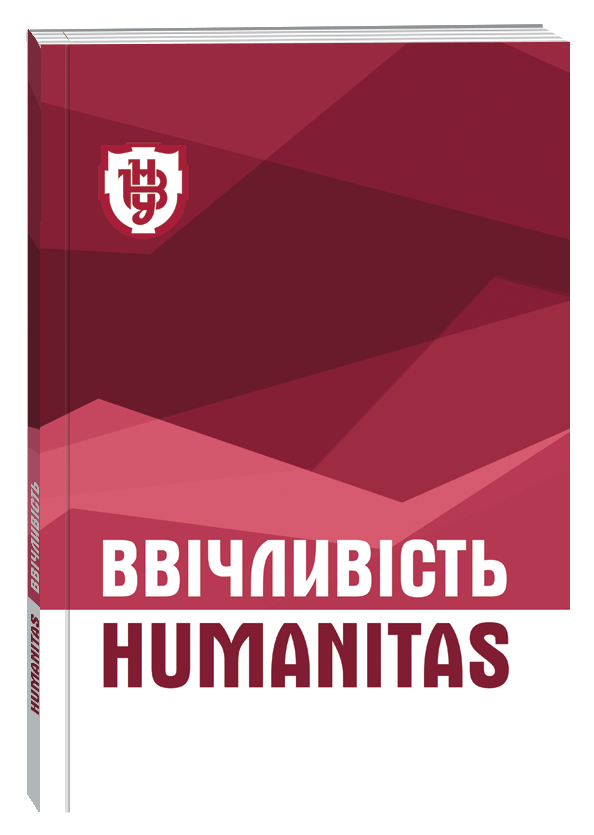SOCIAL RESILIENCE AS A STRATEGIC PRINCIPLE FOR TRANSFORMING THE SOCIAL SERVICES SYSTEM IN UKRAINE
DOI:
https://doi.org/10.32782/humanitas/2025.4.24Keywords:
social resilience, resilience, social services, reform, Resilience Centers, human-centered approach, wartimeAbstract
The article analyzes the evolution of the concept of resilience from individual characteristics to a multisystem approach encompassing personal, family, community, and institutional levels. The practical implementation of the resilient approach is examined through the establishment of a network of Resilience Centers as an innovative organizational model. The purpose of the article is to analyze reformist approaches in the social sphere of Ukraine through the prism of the resilience principle, with a focus on new institutional models and the transformation of the managerial logic of social services under wartime conditions. A fundamental transformation of the managerial paradigm of social services is analyzed: the shift from the paternalistic Soviet-type model to a partnership-based system and the introduction of a human-centered approach. Social resilience is studied as a determining principle of systemic reform of the national social services system of Ukraine in the context of armed conflict. Resilience Centers are conceptualized as the institutional operationalization of the resilience approach in social policy. The results of the study can be used to improve the strategy for the development of Ukraine’s social sphere, to develop criteria for evaluating the effectiveness of social reforms, and to adapt international experience in building resilient social protection systems. Social resilience functions as an integral conceptual framework defining the transition to a proactive preventive approach oriented toward the development of human and social capital. The network of Resilience Centers demonstrates a paradigmatic shift toward integrated multisystem support that synthesizes psychosocial interventions and community mobilization processes.
References
Борисенко В. Психологічна витривалість vs. психологічна стійкість тапсихологічна життєстійкість. Scientific bulletin of kherson state university seriespsychological sciences. 2025. No 1. С. 5–11. doi.org/10.32999/ksu2312-3206/2025-1-1.
Гриньків А. Співвідношення конфлікту та діалогу в соціально-релігійному просторі. Вісник Інституту розвитку дитини. 2015. Вип. 38. С. 13–21.
Гриньків А. Роль життєстійкості в збереженні культурної ідентичності під час та після воєнних конфліктів: упровадження інноваційних соціальних послуг в Україні. У пошуку нових сенсів полікультурного світу. Повоєнний діалог культур. Київ : НАКККіМ, 2024. С. 372–375.
Гриньків А. П., Петрунчак Д. В. Волонтерська складова у наданні соціальних послуг в умовах воєнного стану. Соціальна педагогіка: теорія та практика. 2024. № 1. С. 12–20. DOI: https://doi.org/10.12958/1817-3764-2024-1-12-20.
Єнгаличева І., Гордєєва Т. Моніторинг та оцінка надання соціальної послуги з формування життєстійкості у територіальних громадах. Науковий вісник Ужгородського університету. Серія : Педагогіка. Соціальна робота. 2025. Вип. 1 (56). С. 51–55. DOI: https://doi.org/10.24144/2524-0609.2025.56.51-55.
Полілуєва І., Сахно О. Резильєнтність як складова забезпечення психологічного здоров’я педагогів в умовах війни. European Humanities Studies: State and Society. 2024. № 1. С. 140–151. DOI: https://doi.org/10.38014/ehs-ss.2024.1.10.
Abate B. B., Sendekie A. K., et al. Resilience after adversity: an umbrella review of adversity protective factors and resilience-promoting interventions. Frontiers in Psychiatry. 2024. Vol. 15. 1391312. DOI: https://doi.org/10.3389/fpsyt.2024.1391312.
American Psychological Association. The road to resilience. Washington, DC, 2014. URL: http://www.apa.org/helpcenter/road-resilience.aspx (дата звернення: 10.04.2025).
Block J. H., Block J. The role of ego-control and ego-resiliency in the organization of behavior. In: Collins W. A. (ed.) Development of Cognition, Affect, and Social Relations. New York : Psychology Press, 1980. P. 39–102.
EU, UNICEF, UNHCR Launch €2.7 Million Initiative for Displaced Persons and Host Communities. UNICEF, 2025. URL: https://www.unicef.org/ghana/press-releases/eu-unicef-and-unhcr-launch-27-million-initiative-displacedpersons-and-host (дата звернення: 10.08.2025).
Hrynkiv A. Digitalization of social services: Status, challenges and prospects. Life on the cutting edge: Science. Libraries. Society: Scientific monograph. Riga, Latvia : Baltija Publishing, 2025. P. 387–408. DOI: https://doi.org/10.30525/978-9934-26-535-8-21.
Luthar S. S., Cicchetti D., Becker B. The construct of resilience: a critical evaluation and guidelines for future work. Child Development. 2000. Vol. 71. P. 543–562. DOI: https://doi.org/10.1111/1467-8624.00164.
Patel S. S., Rogers M. B., Amlôt R., Rubin G. J. What do we mean by ‘Community Resilience’? A systematic literature review of how it is defined in the literature. PLoS Currents. 2017. Vol. 9. DOI: https://doi.org/10.1371/currents.dis.db775aff25efc5ac4f0660ad9c9f7db2.
Pietrzak R. H., Southwick S. M. Psychological resilience in OEF-OIF Veterans: Application of a novel classification approach and examination of demographic and psychosocial correlates. Journal of Affective Disorders. 2011. Vol. 133 (3). P. 560–568. DOI: https://doi.org/10.1016/j.jad.2011.04.028.
Rutter M. Psychosocial resilience and protective mechanisms. American Journal of Orthopsychiatry. 1987. Vol. 57. P. 316–331. DOI: https://doi.org/10.1111/j.1939-0025.1987.tb03541.x.
Schäfer S. K., Supke M., Kausmann C. et al. A systematic review of individual, social, and societal resilience factors in response to societal challenges and crises. Communications Psychology. 2024. Vol. 2. 92. DOI: https://doi.org/10.1038/s44271-024-00138-w.
Sherrieb K., Norris F. H., Galea S. Measuring capacities for community resilience. Social Indicators Research. 2010. Vol. 99 (2). P. 227–247.
Southwick S. M., Bonanno G. A., Masten A. S., Panter-Brick C., Yehuda R. Resilience definitions, theory, and challenges: interdisciplinary perspectives. European Journal of Psychotraumatology. 2014. Vol. 5. 25338. DOI: https://doi.org/10.3402/ejpt.v5.25338.
The resilience project. URL: https://www.theresilienceproject.com.au (дата звернення: 12.08.2025).
Ungar M., Theron L., Murphy K., Jefferies P. Researching multisystemic resilience: A sample methodology. Frontiers in Psychology. 2021. Vol. 11. 607994. DOI: https://doi.org/10.3389/fpsyg.2020.607994.
Liubarets V., Litvinova T., Khamska N., Malikova S., Polynska C. Psychological peculiarities of the personality assertiveness development. Ad Alta: Journal of Interdisciplinary Research. 2022. Vol. 12 (2/XXXI). P. 58–62.
Walsh F. Strengthening family resilience. 2nd ed. New York: Guilford Press, 2006.








